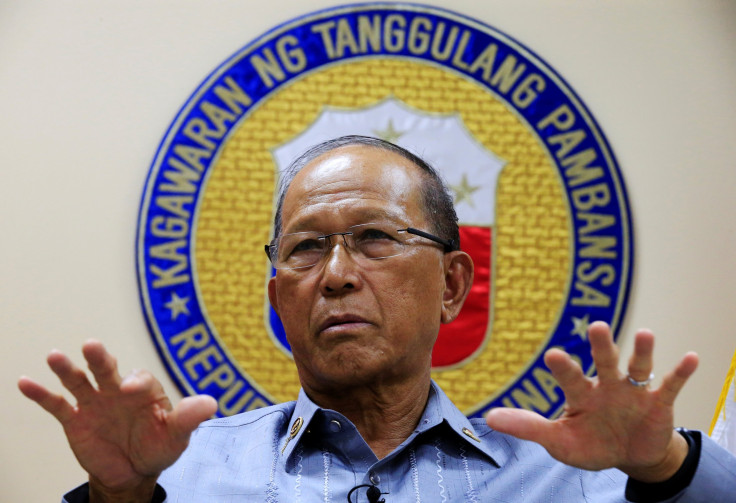War With China? Philippines 'Disturbed' By Chinese Ships Off Coasts

Defense Secretary Delfin Lorenzana said Thursday he was suspicious of Chinese ships off the Philippines' coast in the South China Sea. A Chinese warship and multiple survey ships were spotted within the Philippines’ 200-nautical mile exclusive economic zones in recent months, Lorenzana told Reuters.
"I am disturbed by China's presence there, it is annoying if they will claim the area," Lorenzana said.
Read: Philippines President Duterte Asks Beijing For Military Aid To Combat ISIS
Defense Sec Delfin Lorenzana: one of the survey ships (of China) is plying the Benham Rise @dwiz882 pic.twitter.com/FzIIfPd4Hr
— Jonathan Andal (@JonathanAndal_) March 9, 2017
Satellite surveillance reportedly provided to Manila by allied countries indicated Chinese vessels entered the disputed Benham Rise region within the Philippine exclusive economic zone and stayed for longer than three months.
Exclusive economic zones, which were created in 1982 by the U.N. Convention on the Law of the Sea, gave coastal nations exclusive rights over all natural resources within 200 miles of their shores. The U.N. Commission on the Limits of the Continental Shelf granted Manila undisputed territorial claims to the Benham Rise region and its extensive natural gas deposits in 2012.
Though President Rodrigo Duterte has tried to mend the two countries' relationship after several years of disputes over territory in the South China Sea, Lorenzana said Duterte had drawn “a red line” on any reclamation efforts by China in the Benham Rise region, which is 30 miles off of the Philippine island of Palawan.
Defense Secretary Delfin Lorenzana: Not true that the government set aside the South China Sea arbitral ruling | @JCGotinga
— CNN Philippines (@cnnphilippines) March 9, 2017
Lorenzana said he believes the Chinese survey ships were measuring the water depths to create new submarine routes to the Pacific, the South China Morning Post reported Thursday. He has instructed the Philippine navy to “accost them [Chinese vessels] and drive them away” in the event that they return.
While China claims most of the South China Sea’s energy-rich waters, the Philippines was granted an international arbitration award last year giving it more territory in the contested body of water where $5.3 trillion of trade passes through annually. The neighboring countries of Taiwan, Vietnam, Malaysia and Brunei also have rights to exploit the South China Sea’s extensive reserves of oil and gas.
It is estimated that 11 billion barrels of oil and 190 trillion cubic feet of natural gas sit below the surface of the South China Sea, according to the U.S. Energy Information Administration.
Chinese Foreign Ministry spokesman Geng Shuang told Reuters he was unaware of Lorenzana's accusations regarding the Chinese survey ships.
© Copyright IBTimes 2024. All rights reserved.












